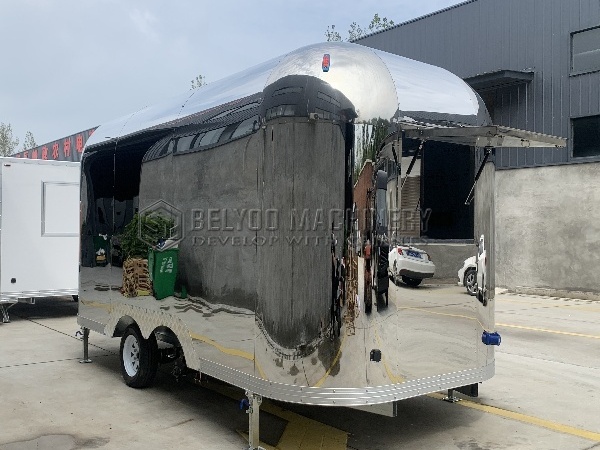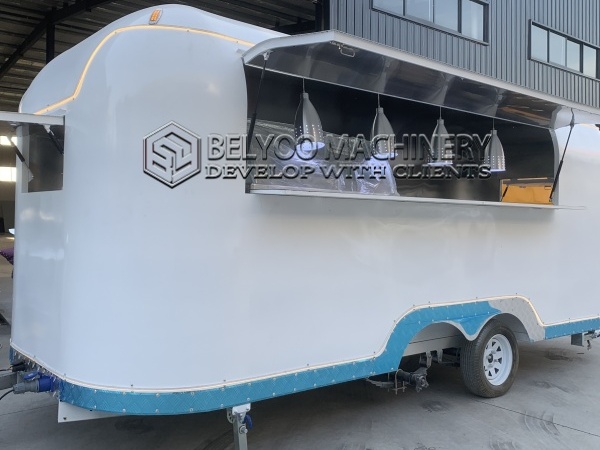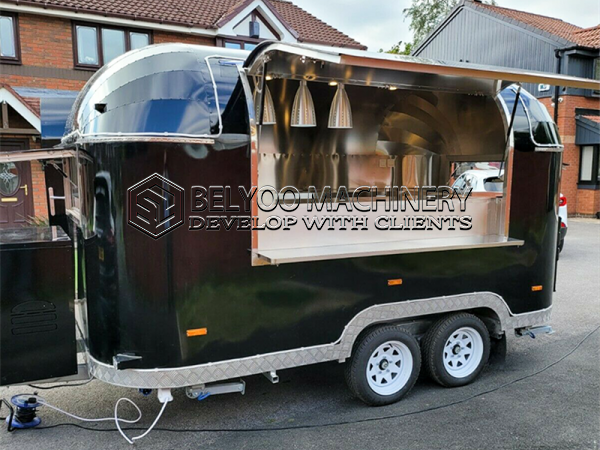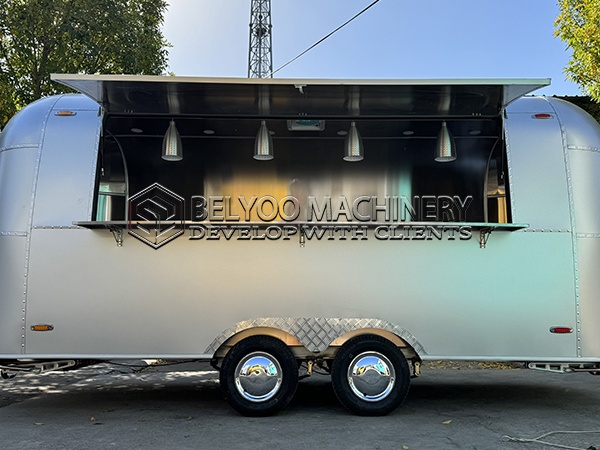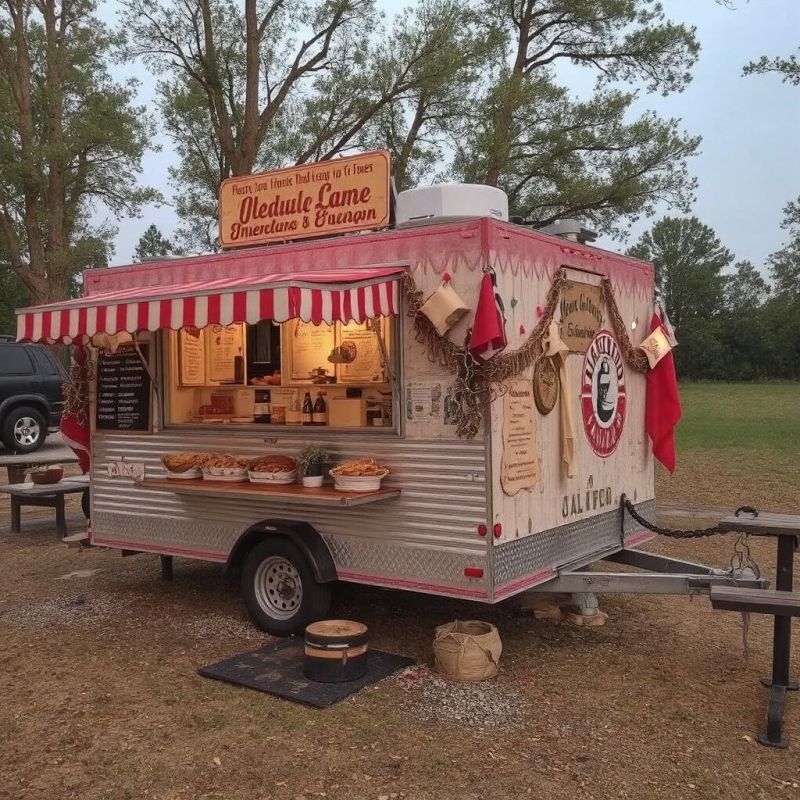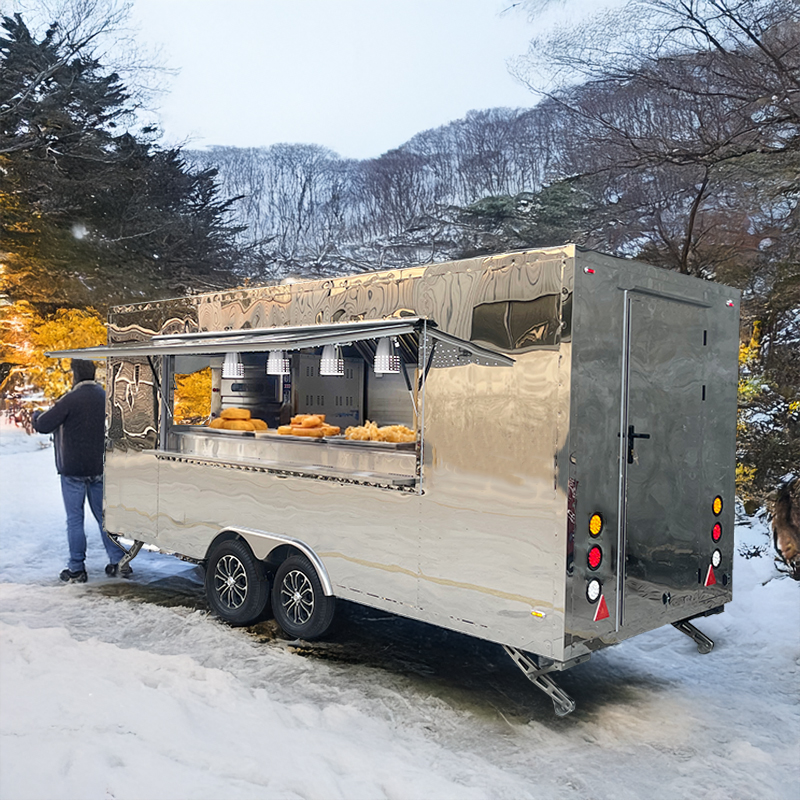With the acceleration of urbanization and the faster pace of people’s lives, franchised food truck trailers, as an emerging and unique catering service model, have developed rapidly around the world and show broad development prospects. Next, we will explore in depth the hot trends and development prospects of franchised food truck trailers in 2025.
1. Market size and growth trend
In recent years, the franchised food truck trailer market has shown a booming trend worldwide. Especially in some large cities in North America, Europe and Asia, food trucks have become part of street culture and are deeply loved by consumers. According to data from market research institutions, the global mobile food truck market has continued to grow in recent years and is expected to reach a new height by 2025. In China, with the acceleration of urbanization and the diversification of consumer demand, the franchised food truck trailer market has also ushered in unprecedented development opportunities.
The growth of the franchised food truck trailer market is mainly due to the following factors: First, consumers’ growing demand for convenient, fast and diversified catering services; second, entrepreneurs’ pursuit of low-cost and high-efficiency entrepreneurial models; third, the government’s support policies for the catering industry, such as tax reduction and exemption, and subsidies, provide a good policy environment for the development of franchised food truck trailers.
2. Technological innovation and intelligent development
With the continuous development of science and technology, the franchised food truck trailer industry is also gradually realizing intelligence and specialization. The application of intelligent technologies, such as mobile payment, online reservation, and intelligent temperature control, makes food truck services more efficient and convenient. Through mobile payment and online reservation, consumers can enjoy food anytime and anywhere, improving dining efficiency. At the same time, intelligent temperature control technology can ensure the freshness and safety of food during transportation and storage.
In addition, the application of Internet of Things technology is also constantly improving the operating efficiency of franchised food truck trailers. Through Internet of Things technology, dining trucks can realize functions such as remote monitoring, intelligent temperature adjustment, and automatic cleaning, greatly reducing operating costs and improving service quality. These technological innovations not only improve the operating efficiency and service quality of food trucks, but also provide entrepreneurs with more competitive advantages.
3. Branded operation and differentiated competition
In the franchised food truck trailer industry, branded operation has become an important means for enterprises to enhance their competitiveness. By joining well-known brands or creating their own brands, entrepreneurs can quickly occupy the market with the help of brand influence and mature business models. Well-known brands usually have a complete service system, professional technical support and rich market experience, which can provide comprehensive support and help for entrepreneurs.
However, with the intensification of market competition, differentiated competition has also become the key for franchised food truck trailer companies to stand out. Entrepreneurs can create a unique brand image and service model based on market demand and their own characteristics to achieve differentiated competition. For example, providing personalized dish customization services, strengthening customer communication and service experience, and launching innovative products and services can all become important means for enterprises to compete differently.
4. Environmental protection and sustainable development
With the improvement of environmental awareness and the popularization of the concept of sustainable development, the franchised food truck trailer industry also needs to pay attention to environmental protection and sustainable development. For example, adopt environmentally friendly materials and energy-saving equipment to reduce energy consumption and environmental pollution; strengthen the recycling and treatment of waste to achieve the recycling of resources, etc. These measures can not only enhance the social responsibility and image of enterprises, but also help reduce operating costs and improve economic benefits.
In addition, the government is also actively promoting the environmental protection and sustainable development of the franchised food truck trailer industry. For example, by formulating relevant policies and standards, enterprises are encouraged to adopt environmentally friendly materials and energy-saving equipment; strengthen the supervision and treatment of waste to ensure the cleanliness and safety of the environment. The introduction of these policies provides a strong guarantee for the environmental protection and sustainable development of the franchised food truck trailer industry.
5. Market demand and segmented development
The development of the franchised food truck trailer industry is also affected by market demand. With the diversification of consumer demand, the franchised food truck trailer market also shows a trend of segmented development. For example, snack trucks offer all kinds of local snacks, barbecue, fried skewers, etc.; fast food trucks offer fast food products such as hamburgers, fried chicken, pizza, etc.; coffee trucks and beverage trucks focus on providing all kinds of coffee, tea and other beverages. These subdivisions have their own characteristics and meet the taste needs of different consumers.
Therefore, franchised food truck trailer companies need to continuously adjust and optimize products and services according to changes in market demand. Through segmented development, companies can better meet customer needs and improve market competitiveness. For example, provide dishes with different flavors and styles for different types of consumer groups; provide personalized service solutions for different occasions and needs.


